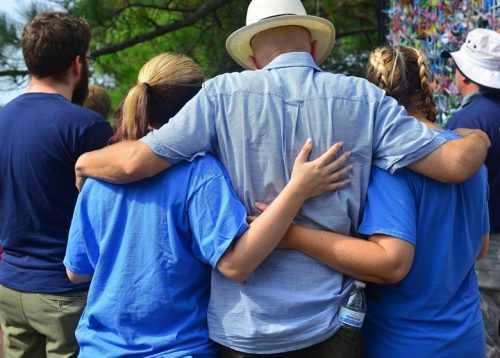To feel lost, sad, and lonely after the death of a loved one seems a natural way to grieve. But sometimes, guilt feeling, trauma, confusion, shame, and rejection are overlooked. When not given proper attention, the real grieving turns out to be complicated that it could lead to depression, PTSD, and sometimes suicide.

Complicated Grief
There are many stages to grieving. When someone close to you died (often unexpectedly), you can suffer from complicated grief, which is a much stronger and serious grieving. It may cause you to avoid going out, attending social activities. You may have thoughts or wishes that you should have died, too.
“Individuals may avoid discussing the loss as well as avoid people or places that are associated with their grief. This experience can put an individual in a vulnerable position with regard to their mental health.” Tali Yuz Berliner, Psy.D. said. A person suffering from complicated grief needed added support and healing resources to cope with his loss. If left untreated, it can leave him with a long-term functioning impairment.

My sister-in-law decided to live overseas with her new family, leaving her loving father in their home alone. After 10 years, she came back to be with him. Seeing how her father has aged, she felt a pinch of pain inside of her. After a few months, he had a heart attack and died. She blamed herself for not being able to spend much longer time with him. Months had passed, but she’s still grieving over the loss. She refused to go back to Canada, and just requested the family to move back here. She would suddenly burst into tears almost every day, blaming herself. She’s even neglecting her responsibilities to her two kids.
“The closer your connection and the more intense the loss, the more profound the emptiness may feel.” Roya R. Rad, MA, PsyD explains. Her guilt for not being able to take care of her father interferes with her coping process. She started saying things to her daughter, and even contemplating suicide. We decided to bring her to a psychotherapist to address whatever is happening in her. She was referred to undergo complicated grief treatment.
Guilt And Adjustment
Guilt is the primary factor why my sis-in-law suffers from complicated bereavement. She feels worthless and has thoughts that she has done nothing for her father. Despite the fact that she lived abroad for 10 years, she finds it hard to adjust to the fact that she has to go on without her father to take care of.
While in Canada, she also suffered mild depression brought by being away from her family. She got better in time through meds and therapy. This could have made her situation worse.
Treatment And Suicide Prevention
Antidepressants are recommended to address the depression that resulted from the grief. She is undergoing talk therapy so she can express her deepest emotions with someone who listens without judgment. It’s essential that she is surrounded by people who will not argue or yell at her so she’ll not feel threatened.

The focus of her treatment now is to prevent her from acting out on her suicidal thoughts. Somebody has to be with her 24/7. We are making sure that she is surrounded by familiar people (friends and relatives) that care for her. Her husband and daughters shower her with attention and make her feel loved and needed. That way, she may be able to get back to her usual self.
Losing someone dear to you is hard, and even harder to see people close to you suffering so much because of that loss which no one can prevent from happening.
Whether her being suicidal is due to the chemical imbalance in her brain, guilt feeling, or adjustment difficulty, the fact that she needs help should not be ignored.
If someone you know is suffering from severe grief or severe depression, encourage her to seek help because this is something no one should take for granted. Remember, “Many people who end up killing themselves have mentioned suicide to someone directly or in directly, so take them seriously.” Torey C. Richards, LMHC said.